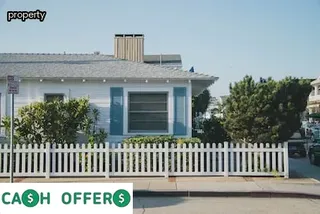Eviction proceedings in Florida can take anywhere from a few days to several weeks, depending on the unique circumstances of each case. In order to understand why eviction processes take as long as they do, it is important to look at the reasons why evictions are ordered in the first place.
Generally, evictions are carried out when a tenant fails to meet their contractual obligations under the terms of their lease agreement. This could include things like failing to pay rent on time or engaging in illegal activity on the premises.
Eviction cases must also be handled through a court system that follows specific procedures and timelines. Additionally, landlords may need to complete certain administrative tasks before an eviction can be completed.
All these factors contribute to how long an eviction takes in Florida, but understanding them is essential for anyone looking to navigate the process successfully.

Serving an eviction notice in Florida is a necessary first step in the process of evicting a tenant from their rental property. It is important to understand the correct procedure for serving an eviction notice, as the rules and regulations vary slightly from state to state.
In Florida, the landlord must provide a written notice that is signed by the landlord or an authorized agent of the landlord. The notice must include information about when and how rent is due, how much rent is owed and how long the tenant has to vacate the premises after receiving the eviction notice.
The written eviction notice must also be served personally to the tenant or posted on their door. When serving an eviction notice in Florida, it is essential that all legal requirements are followed precisely or else it may delay or invalidate the entire process.
Once a valid eviction notice has been served, tenants have seven days to respond before any further action can be taken by either party. If no response is received within this time period then landlords may proceed with filing for formal eviction proceedings with their local court.
As a landlord in Florida, it is important to understand the steps that must be taken when a tenant does not comply with the notice. The first step is to provide an eviction notice of three days for nonpayment of rent or seven days for any other violations.
After these notices are served, the tenant has the opportunity to either comply or vacate the premises. If they do not comply, then the next step is to file an eviction lawsuit with your local court.
This begins a process which can take anywhere from one to two months depending on factors like whether or not the tenant contests the case and if there are backlogs in court proceedings. As a landlord, you should also be aware of your rights and obligations during this eviction process.
You may need to provide additional documentation such as proof of ownership and copies of all paperwork related to this case if requested by either your tenant or the court. Taking all necessary steps is key in ensuring that you remain compliant with all applicable laws and regulations throughout this process.

The eviction process in Florida is often a long and complicated one. It begins with the landlord serving the tenant with a notice to vacate, which must state the reason for the eviction and provide an appropriate length of time for the tenant to vacate.
Once this notice has been issued, the tenant then has seven days to file an answer with the court contesting the eviction. The judge will then review all evidence and make their decision about whether or not to grant an eviction order.
If granted, the tenant then has 24 hours to leave, or else they risk being forcibly removed by law enforcement. During this process, it's important for both parties to remain aware of their rights and responsibilities as outlined in Florida law.
Tenants should also be sure to keep track of any documents related to the case, such as receipts and communication between landlord and tenant so that if necessary they can present those documents at court. It's also important for landlords to understand that there are certain steps that must be taken before filing for an eviction in order to ensure that their rights are fully protected under Florida law.
The cost of an eviction in Florida can be considerable. The entire process can take up to five months, depending on the specifics of the case and the court's backlog.
A landlord must pay a filing fee to begin the eviction process, and this fee is typically nonrefundable. If a tenant contests the eviction, the landlord may be responsible for fees such as attorney costs and court costs.
In addition, if the tenant fails to appear in court or does not vacate the property after receiving a judgment in favor of the landlord, there may be additional fees required. This could include sheriff or marshal services or fees related to changing locks and securing a property.
All these fees can contribute to an already expensive process that could have been avoided with proper tenant screening procedures prior to signing a lease agreement.

As a landlord or property manager in the state of Florida, it is important to know your rights when it comes to eviction. When considering an eviction, it is important to be aware that according to Florida law, landlords must provide tenants with at least three days notice before they are legally allowed to file for an eviction.
In addition, the landlord must also wait until the tenant has had an opportunity to pay up any outstanding rent that is owed before proceeding with the eviction process. Furthermore, once the eviction process begins, there can be numerous steps involved and it may take anywhere from two weeks to several months for a judge to make a final determination.
It is also important for landlords and property managers in Florida to understand that if their tenant does not appear in court or challenge the ruling then they may be able to get possession of their property sooner than if they did appear in court and contest the ruling. Additionally, even if a landlord obtains a judgment of possession from the court it may still take several weeks or longer for them to get their property back as there are additional steps needed before this can happen.
To ensure you are prepared for any legal proceedings related to evictions it is best practice for landlords and property managers in Florida to consult with an attorney who specializes in landlord-tenant law.
When evicting tenants from a rental property in Florida, it is important to be aware of the laws governing landlord-tenant relationships and to respect the rights of all parties involved. Landlords must comply with federal and state fair housing laws that prohibit discrimination based on race, color, religion, national origin, sex, familial status, or disability.
It is also important to avoid any form of harassment or retaliation against tenants for exercising their rights. Furthermore, landlords must give proper notice before initiating legal proceedings for eviction and follow the procedural steps outlined in Florida law.
If these requirements are not met strictly, the eviction may be deemed unlawful and can result in penalties for a landlord. Understanding these rules and procedures will help ensure an eviction takes its full course while avoiding unlawful discrimination.

When going through the eviction process, it is important to ensure that all documentation is in order. This includes any lease agreements, notices of rent payments, and other court documents.
It is also necessary to keep a record of communication between yourself and your landlord as well as all correspondence with the court. Make sure to follow the procedures for filing a complaint or answer in the eviction case, which can be found on the Florida Courts website.
Keep copies of everything so you have proof if something should go wrong during the course of your eviction. Additionally, if you are served with an eviction notice or summons, make sure to respond within the given timeframe and provide accurate information when filling out forms.
Following these steps will ensure that you have proper documentation throughout the eviction process in Florida.
Good record-keeping is essential for a successful eviction procedure, and there are several best practices that all Florida landlords should follow. Before starting the eviction process, it is important to document the tenant’s rental history, including all payments and other details pertaining to their lease agreement.
Once an eviction notice has been issued, the landlord should keep track of any communications between themselves and the tenant throughout the proceedings. This includes any notices served, court hearings attended, and relevant documents filed with the court.
Additionally, if an eviction order is granted by the court, it is beneficial to have records regarding payments made or accepted by either party throughout the entire process, as well as records of any post-eviction inspections conducted after a tenant vacates a property. Maintaining accurate records in accordance with Florida’s laws can help ensure that landlords understand their rights and obligations during an eviction proceeding and can ultimately save them time and money in the long run.

Preparing for potential disputes and challenges when facing an eviction in Florida is important. Knowing the process, understanding legal rights and responsibilities, and being aware of potential pitfalls can help tenants protect themselves during the eviction process.
It's essential to understand what steps a tenant must take to contest an eviction legally and successfully. Tenants should research their local court's procedures so they can be prepared with any required paperwork or documents.
Additionally, tenants should be familiar with their state's laws surrounding evictions so they can recognize any violations that may occur during the eviction process. To ensure a successful outcome, tenants should seek legal advice from an experienced attorney who specializes in landlord-tenant law as soon as possible after receiving an eviction notice.
With this knowledge in hand, tenants will have a better chance of avoiding costly delays or mistakes during the eviction process in Florida.
The county clerk plays a vital role in any Florida eviction case. From filing the summons and complaint to entering the judgment, the county clerk is involved in all aspects of the eviction process.
The court clerk's office is responsible for keeping records of all documents related to the case, including filings and orders. Additionally, they are responsible for ensuring that all parties involved receive proper notice of the proceedings.
In some counties, the county clerk may also be responsible for collecting rent payments and enforcing court orders if a tenant fails to comply with them. The role of the county clerk is an important one when it comes to evicting someone from a rental property in Florida.
By understanding their responsibilities, landlords and tenants alike can ensure that evictions proceed smoothly and quickly according to state law.

When a landlord in Florida decides to evict a tenant, they must first determine the appropriate type of eviction notice. This is based on the reason for the eviction and applicable state law.
In Florida, there are three main types of notices: pay rent or quit, terminate tenancy, and lease violation. A pay rent or quit notice requires the tenant to either pay the rent due or vacate the premises within three days.
If a tenant does not comply, an unlawful detainer lawsuit may be filed with the court. A terminate tenancy notice informs tenants that their rental agreement has been terminated and they must vacate within seven days.
Lastly, a lease violation notice informs tenants that they have violated their lease agreement and must either remedy it or move out within seven days. Knowing which type of eviction notice to use is important as failure to follow state laws could lead to costly delays in evicting a tenant.
The Writ of Possession is a document issued by the court that allows the tenant to be evicted from their rental property. This document is typically issued after a landlord has won an eviction lawsuit, and it is the last step in the process.
In order for the tenant to be legally evicted, they must receive this document from either the landlord or an authorized representative, such as a sheriff or constable. If there are any disputes between the tenant and landlord, these can also be addressed by filing a Motion to Set Aside Writ of Possession with the court.
It's important for tenants to understand their rights when presented with this document so that they can make informed decisions about their future. The amount of time tenants have until they must vacate will vary depending on where in Florida the eviction occurs; this is why it's important for tenants to know how long an eviction takes in their particular jurisdiction before making a decision about what to do next.

In Florida, if a tenant has not paid rent or has violated the terms of the lease agreement, a landlord can file an eviction lawsuit. The process of evicting a tenant can be lengthy and complicated, so it is important to understand when you are able to force a tenant out of your property.
Generally speaking, a landlord must first provide proper notice to the tenant before filing an eviction lawsuit. Depending on the specifics of the situation, this could be as short as 24 hours or up to 3 months in duration.
After the required notice period, a landlord may then submit their complaint to court and obtain a summons that must be served upon the tenant. Once served, the renter will have either five or seven days (depending on what type of notice was given) to respond.
If they fail to respond within this time frame, then the court may rule in favor of the landlord without hearing from them at all. However, if there is a hearing and the judge rules in favor of the landlord, then they will need to wait for an order of eviction before they can physically remove tenants from their property.
When it comes to eviction proceedings in the state of Florida, landlords often make mistakes that can slow down the process or even invalidate the eviction altogether. One common mistake is failing to provide proper notice to the tenant, as provided for by law.
Another mistake landlords make is attempting to evict a tenant without having a valid court order. Furthermore, landlords may attempt to use threats or intimidation against a tenant in order to get them to leave, which is illegal and will not be tolerated by the court.
Additionally, some landlords may fail to properly document any fees associated with an eviction, such as late fees or damage charges. Lastly, when it comes time for the landlord to appear before the court they may not have adequate documentation or evidence proving their case against the tenant; this can also lead to delays in receiving a judgment from the court.
As such, it is important for landlords in Florida to familiarize themselves with state laws regarding evictions and understand what steps must be taken in order for an eviction process to move forward efficiently and legally.
Evictions in Florida are taking longer than ever, and the process can be lengthy. According to recent reports, the average eviction in Florida takes anywhere from two to three months.
This includes both the court proceedings as well as the physical removal of a tenant from their rental property. During this time, landlords must go through various processes such as filing a complaint with the court and serving a summons on the tenant.
Additionally, after a court ruling is issued, many tenants may still remain in their residence for up to two weeks before needing to vacate. This can further delay an eviction process and cause headaches for landlords who are unable to collect rent during this time period.
Furthermore, some evictions may take even longer since courts are currently backlogged due to COVID-19 related issues. Ultimately, it is essential for landlords to understand what they are getting into when considering an eviction in Florida so that they can plan accordingly and avoid unnecessary delays or complications throughout the process.

The eviction process in Florida can be a long and complicated one. It is important to understand all the steps of the eviction process so that you can be prepared for whatever comes your way.
First, the landlord must give the tenant a three-day notice to vacate. The tenant then has three days to either pay any overdue rent or move out of the property.
If rent is not paid or the tenant does not move out, the landlord may then file an eviction lawsuit with the court. Once all paperwork is filed, a hearing will be scheduled and both parties will have an opportunity to present their case.
After the hearing, if it is determined that the tenant should be evicted, a writ of possession will be issued by the court allowing law enforcement to remove them from the premises if they have not already left voluntarily. Depending on how quickly all paperwork is processed and hearings are scheduled, an eviction in Florida could take up to six weeks or longer.
If you are facing eviction in Florida, there are steps that can be taken to delay the process. It is important to understand your legal rights and to know what actions you should take in order to delay an eviction.
In general, a landlord must file a complaint with the court, serve the tenant with a summons and complaint, and then wait for a hearing date. The tenant then has five days to respond by filing an answer if they wish to contest the case.
If a tenant wishes to delay the eviction process, they must show up at their court hearing and explain why they need more time. Additionally, tenants may be able to negotiate an agreement with their landlord or work out a payment plan in order to avoid being served with an eviction notice.
Tenants also have the right to challenge any errors made on the part of their landlord during the eviction process. By knowing your rights and taking appropriate action, it is possible for tenants in Florida to delay an eviction.
Do you have 30 days after an eviction notice in Florida? Yes, in the state of Florida, tenants typically have 30 days to respond to an eviction notice. This is set out by state law, which governs the entire eviction process from start to finish.
The Florida Statutes provide that a landlord must give the tenant a written notice of eviction at least three days before filing an eviction lawsuit. During those three days, the tenant may choose to move out or contest the eviction.
If they do not leave within this time frame, then the landlord can file an eviction lawsuit in court. Once an eviction lawsuit has been filed, the tenant will be served with a summons and complaint detailing their rights and responsibilities regarding the case.
That summons and complaint will also include a date for when they must appear in court or answer the complaint. At this point, they still have around 30 days before they must leave their rental unit if they do not win their case in court.
Depending on how quickly the court schedules hearings and makes decisions, it could take anywhere from one month to two months for a tenant to receive their final judgment after receiving an eviction notice.